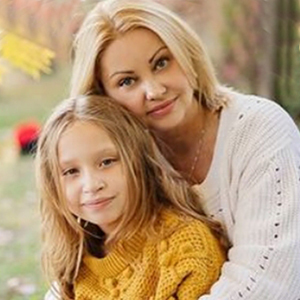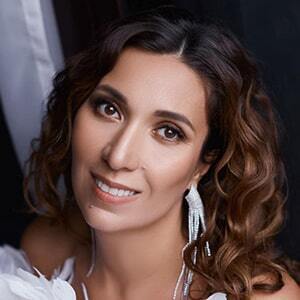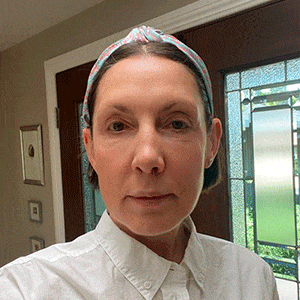Leave your phone number, we will call you back soon, answer all your questions and offer an individual program that is suitable for you and your child.
What types of primary schools are there in England and how do they apply?
School education in England can be divided into 3 levels:
- Primary/preparatory(they are also called Junior school) – primary school (4–11 years). Some private schools offer education up to age 13, and sometimes accept children from 5 or 7 years of age.
- Secondaryor Senior school – secondary school (11–16 years). At the end of their studies, children take GCSE exams.
- Sixth Form(Sixth Form) – the last two years before taking the A-levels exams.
Primary education in England
Children go to primary school when they are 4 years old. No matter what date the fall semester at school begins, age is counted from September 1. That is, on September 1, the child must be 4 years old. The first year at school is called reception.
In the UK there is a law on universal schooling, according to which parents are obliged to send their children to school. Or formalize home schooling for them. However, according to the law, this obligation begins when the child turns 5 years old. That is, you can stay in kindergarten or at home until you are 5 years old. Also, the child has the right to skip classes without consequences before the start of the semester, which he will enter as a five-year-old. Starting at age 5, public schools strictly monitor attendance and may fine parents if a child misses classes.
Children 4 years old go to reception from September, because otherwise there is a high probability of not getting a place in the right school. Places are rarely released in the middle of the school year, and good schools even have a waiting list.

Public schools
As a rule, most public primary schools are mixed, that is, boys and girls study together. After finishing primary school, children move on to secondary school. Although recently public schools have appeared for children from 4 to 18 years old, where a child can study throughout all school years.
Public primary schools are called primary schools and are divided into two main types: religious and non-religious.
Non-religious schools
These are regular schools where children are accepted at their place of residence (catchment area). You should check which schools you are zoned into and then start choosing which ones you want to get into.
Public primary schools vary. Here's what to look for when choosing them:
- academic results
- composition of teachers
- personality of the director,
- what kind of children study here
- size and number of classes in parallel,
- size and equipment of the territory,
- sports equipment
- availability of clubs and extra activities after school,
- living conditions.
When choosing a school, formulate your own expectations from the school and go there to an open day, listen to the teachers, look at the children who study there and their parents. A very good tool – it is to come to school at the end of classes, when parents take their children home. This way you can see and understand a lot.
Next, it is worth studying OFSTED reports and ratings, for example, according to The Telegraph. But keep in mind that OFSTED takes into account many factors related to safety, comfort, food and other non-academic indicators. While in school ratings it is the academic indicators of students that are important, and schools in the ratings are arranged in descending order of these indicators.
There is such a thing as feeder school. This is when a particular secondary school gives an advantage when applying from a particular primary school. Take this into account when choosing an elementary school.
Admission process
You need to apply to your local council for a place in the schools you want. You can do this on your district’s website in the fall a year before the start of school at the reception. In your application, you indicate the schools you want to attend, starting with the most desirable and then descending. The order does count and matter, i.e. First you need to indicate the school you want to get into first. Deadline for accepting applications – January 15. You will receive results with an offer of a place in a specific school on April 16.
There is no selection in state primary schools, that is, they are all non-selective. When allocating places in schools, the local council takes t take into account two factors:
- the order in which you list the schools on your application
- distance in a straight line between your home and the main entrance to the school. This distance is traditionally called “as the crow flies.”
If a school receives more applications than there are places available, the first places are given to those children who live closest to the school, and then the places are distributed according to distance. This is a general rule, but sometimes you can hear that a child was not given a place at the nearest school, although it was her parents who put it first on the list. This also happens.
Many schools have a siblings policy, which means that younger brothers and sisters of school students are given priority when applying for admission. Usually the decision to provide a place at a school is final, but you can try to talk to your local council if you are not happy with the decision. You can ask to put your child on the waiting list for a place at the school that is most attractive to you.
Remember that most state primary schools do not have the objective of preparing pupils for entry into selective secondary schools and the 11+ entrance exams. If you decide to send your child to a district primary school, but are aiming at a selective secondary school, be prepared for the fact that you will have to do a lot of extracurricular activities.


Religious schools
Religious schools, in addition to funding from the state, receive financial support from the relevant religious institutions. There are Anglican schools (Church of England), Catholic (Roman Catholic), Jewish (Jewish), Muslim (Muslim) and Hindu (Hindu) – these are the main religions represented in British primary education.
The purpose of the existence of such schools – raising children in the traditions of one religion or another, and a significant portion of families who send their children to such schools are religious. But firstly, the degree of religious education in such schools varies quite a lot, and secondly, practice shows that such schools often turn out to be academically stronger than non-religious ones. This is why many even not very religious families want to send their children to these schools. But it's not that simple.
Admission process
Religious schools also have a catchment area and the selection and application process is almost the same as in the case of regular primary public schools. Except for two things:
- If you are not overly religious and your choice is dictated by the school's good academic performance, find out what place religion occupies in the educational process at a particular school. For example, are you ready for your child to study Torah every afternoon instead of art, music, theater and sports?
- When submitting your application, you will need to provide a certificate from a church, synagogue, temple or mosque that you regularly attend. The forms of certificates and the rules for issuing them differ in different religious institutions. The requirements for obtaining such a certificate also differ. Typically, you will need certification from a priest, rabbi, imam, or temple trustee that your family members are regular members and involved in the life of the community. It is quite standard to be required to attend a temple, mosque or synagogue at least twice a month for at least a couple of years before you can ask for the necessary certificate.
Sometimes it doesn’t matter to the school which church (or other religious institution) you bring such a certificate from. Only religion matters: Catholic schools accept only Catholics, and Muslim schools, accordingly, only accept Muslims. However, there are schools that only accept children from their own religious community, meaning you must attend a specific church. You need to find out all this in detail at each school.
Traditionally, Anglican schools are the most liberal in this regard: they often accept Orthodox children with a certificate from an Orthodox priest.


Private schools
Private primary schools in England are divided into two types:
- Preparatory schools (or simply prep schools) – schools that exist separately and independently from secondary schools (senior schools)
- Junior schools – schools that exist as the first stage of secondary school.
Children from 4 to 11 years old study in prep schools, sometimes up to 13 years old. Junior schools work in the same age range, although there are schools that Some accept children only from 5 years old, bypassing the reception, or only from 7 years old based on the results of exams 7+. In some schools, where children study starting from reception, there is an additional enrollment at 7 years old and/or at 10 years old (accordingly, you need to pass entrance exams 7+ or 10+).
Tuition fees at a private primary school – on average from 7 to 15 thousand pounds per year. Junior schools are usually more expensive than prep schools.
School choice
An important factor when choosing an elementary school – its location relative to your home. If children often travel to secondary school within an hour, then such a load for a 4-5 year old child may be too much. Decide on your goals and objectives. If you are planning to enroll in a selective high school, look at where the children from your chosen prep school are going. This information is written on the school website. In the private sector there is also the concept of feeder schools – that is, it is known that a particular primary school traditionally sends students to a particular secondary school. Take this into account when choosing a school.
Information about private schools can be found on the Independent Schools Inspectorate (ISI) website https http://www.isi.net/schools or on the website https://www.best-schools.co.uk.
Advantages of prep schools
- There are more such schools, so it is easier to find a school closer to home, which is important for a small child.
- Schools are usually small in size, with a warmer family atmosphere and an individual approach to children.
- There are very strong prep schools that prepare a child well for the entrance exams to secondary school 11+.
- Lower tuition costs.
Disadvantages of prep schools
- You must transfer to secondary school and, if choosing a selective school, take entrance exams 11+.
- Small prep schools often do not have good territory and serious sports equipment.
Advantages of junior schools
- Very often junior school students are accepted into secondary schools almost automatically. There is no need to take 11+ exams on a general basis.
- When moving from junior school to high school within one large school, a child may experience less stress, since many things will remain familiar and familiar to him.
- There are good opportunities for sports, a large area shared with the high school.
Disadvantages of junior schools
- You often have to travel far because there are few such schools.
- Feeling like a big school. Can be stressful for a young child.
- Academic preparation is often inferior to strong prep schools and the first time in high school can be difficult.
- Higher tuition costs.


Admission process
The application must be submitted directly to each school and the local council has nothing to do with the application process. The school itself makes the decision to enroll students.
Private primary schools are selective and non-selective. In both cases, application deadlines can vary greatly and depend on the number of applicants for a place and the school's policies. There are schools to which applications must be submitted almost immediately after the child is born and at least in the first year of his life. Other schools open enrollment only 1.5 years before the start of studies. All this needs to be clarified in each specific school. Submitting an application includes paying a registration fee of approximately £100.
If you choose a selective private primary school, then about a year before the start of school, you and your child will be invited to take entrance tests. Yes, when your child is about 3 years old. But don't be alarmed, these are not exams. The conversation takes place in the format of a friendly interview or group exercises in a playful way. Sometimes there is one, and sometimes two stages. The interview can be conducted by teachers and/or the school principal with the participation of a child psychologist. Usually the interview is conducted in the presence of parents so that the child does not experience severe stress.
Children at this stage are not required to be able to read and write. Sometimes they ask you to write your name or some individual letters of the alphabet. You usually need to be able to count to at least 10. The main goal of the interview – understand the child’s potential, general level of development, motivation, vocabulary, imagination, spatial thinking, intelligence, ability to maintain attention, and the like.
Questions and tasks can be different, but the following are typical: story az from the picture, a description of your room, a story about your favorite activity, about family members, tasks for logical thinking – find a pattern in a series of pictures or indicate an extra object.
Parents are interviewed separately. The school wants to find out what family the child comes from, how willing the parents are to support him in his studies, and how important a good education is for the family. In short, the school wants to make sure that the child will fit well into the school community.
Letters offering a place in private primary schools usually arrive at the beginning of the calendar year in which the child is due to start school. If you accept a place, you will need to formally inform the school and pay a deposit equal to one term's tuition fees. This amount will be returned to you when the child graduates from school.
Information taken from the site https://www.goodschoolsguide.co.uk/






About "Paradise"

Expert assistance in selecting the right schools for your child in the UK, Switzerland, which have been our main specialization since 1996.
We also help you enter schools where teaching is conducted in English: in the United Arab Emirates, Spain, Austria, Thailand, Canada, and France.
Full support in the admission procedure: preparation for an interview, visits to selected schools accompanied by a Paradise employee.
Assistance in applying to universities in the UK, Switzerland, Canada: writing motivation letters, creating a package of documents, creating the right case for applying for a visa (to avoid rejection).